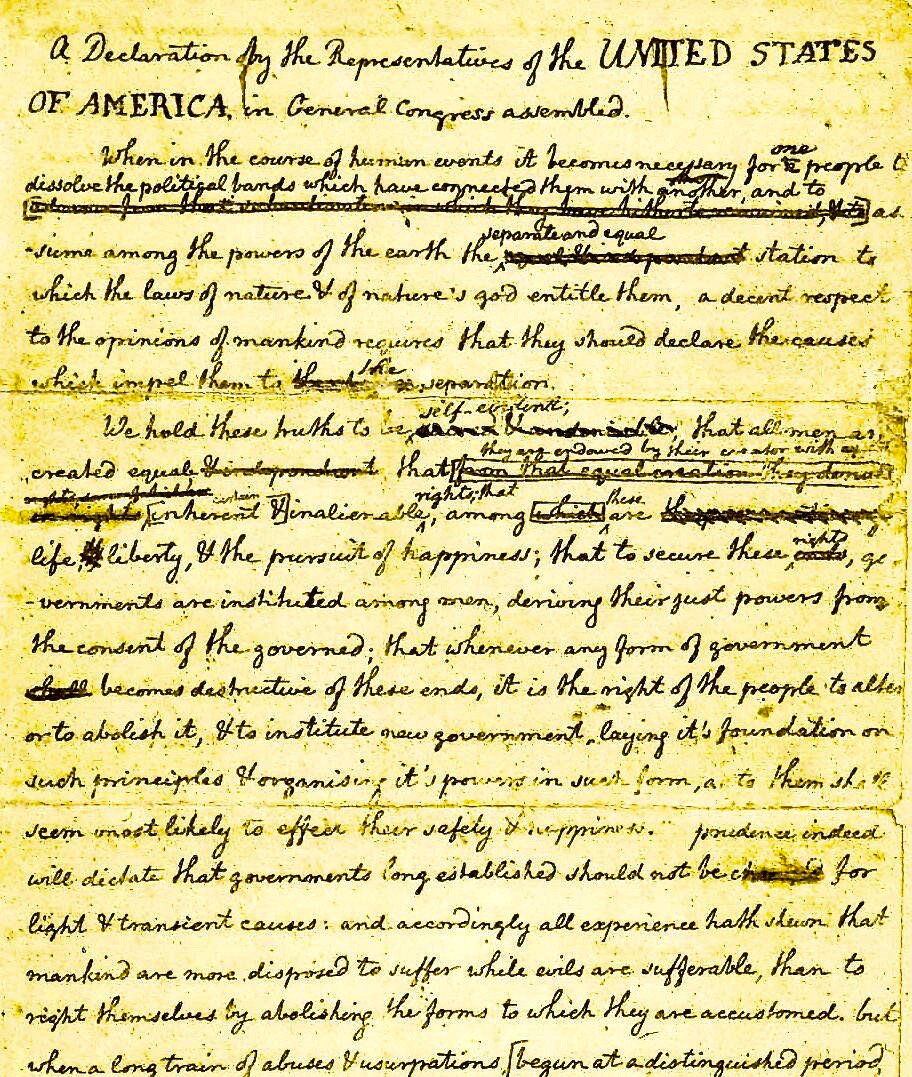And you think government is not broken? Hold on for this one. It is legal terrorism.
The phone call came out of the blue in 2011.
A federal biologist on the other end of the line told Edward B. Poitevent II that the U.S. Fish & Wildlife Service intended to designate a large swath of Louisiana woods that had been in his family for generations a “critical habitat” for the endangered dusky gopher frog.
Poitevent was confused because the frog had been neither seen nor its croak heard on the land since the 1960s. Later he would learn that his land is not, in fact, a suitable habitat for the frog anyway.
“No matter how you slice it or dice it, it’s a taking of my land in that I can’t use it or sell it now,” said Poitevent, a New Orleans lawyer.
A half century after disappearing from the 1,500-acre parcel in Louisiana, the dusky gopher frog will likely appear this month in filings urging the U.S. Supreme Court to settle the matter after years of costly litigation.
The dusky gopher frog.In one sense, the case illustrates the conflicts that arise as conservationists and the government use the Endangered Species Act to protect privately held lands. But legal scholars say the absent amphibian could provide a broader test of just how far the government’s regulatory reach can extend under the Constitution.
The case offers the high court a chance to revisit its “Chevron deference” precedent, named for a landmark 1984 ruling involving the oil giant and environmental activists. It held that when a federal law contains ambiguous language, the courts should defer to the agency’s interpretation unless it is unreasonable. Given that many laws contain ambiguous language – and that “unreasonable” is also a squishy term – Chevron gives federal agencies wide authority not just to interpret but to make law, many critics say.
Although the Trump administration has declared its intentions to rein in the regulatory state, the Interior Department declined to comment on this case, as did the Justice Department’s Office of the Solicitor General. Regardless, only the Supreme Court can overturn Chevron, and it is unclear how the addition of Justice Neil Gorsuch, a noted Chevron skeptic, may influence the litigation. But Columbia Law School professor Philip Hamburger, a trenchant critic of America’s administrative law system, doubts the dusky frog will join Brown, Roe and Citizens United in the annals of court history.
“I would love for them to take it up and overturn Chevron — and this is an opportunity for them to do so if they were so inclined,” he said, “but they’ve shown remarkable dexterity in avoiding it.”
Nevertheless, the case’s history demonstrates how Chevron can force judges to rule against what some perceive as simple common sense. From the outset of this process, some judges who have ruled against Poitevent and fellow plaintiffs have insisted their hands were tied.
“The Court has little doubt that what the government has done is remarkably intrusive and has all the hallmarks of government insensitivity to private property,” U.S. District Judge Martin L.C. Feldman wrote in his 2014 decision siding with the wildlife service and environmental advocacy groups. “The troubling question is whether the law authorizes such action and whether the government has acted within the law. Reluctantly, the Court answers ‘yes’ to both questions.”
The dusky gopher frog, a largely subterranean critter, is on a long list of species whose endangered designations restrict private land use. Currently, development rights are being challenged to protect the habitats of at least four other creatures: the Riverside fairy shrimp (California); the Northern spotted owl (Oregon, Washington and California); the Gunnison sage grouse (Colorado and Utah); and the jaguar (Arizona and New Mexico).
But the Louisiana case stands out because of the frog’s long absence from the land in question.
M. Reed Hopper, an attorney with the Pacific Legal Foundation, which sued in 2013 on behalf of some of Poitevent’s relatives, called the gopher frog case an “extreme example” of officials enforcing the Endangered Species Act “contrary to its terms, without regard for other social values such as housing, jobs, food, and production, or when the burdensome cost of species protections fall unfairly on a few landowners that should be shared by society as a whole.”
Fifteen states have filed amicus briefs with the plaintiffs seeking some restriction on federal regulatory reach within critical habitats. But Feldman, an advocate of judicial restraint appointed by President Reagan, wrote in his ruling that in his view a court would be overreaching were it to side with the property owners. He hinted, perhaps facetiously, that what the land owners really needed was an activist judge. Otherwise, he said, Congress would have to amend the Endangered Species Act for the co-litigants to get relief.
Edward B. Poitevent IIOther jurists disagree. U.S. Appeals Court Judge Priscilla Owen, who dissented in the 5th Circuit’s initial upholding of Feldman’s ruling, said there must be regulatory limits. Otherwise the wildlife service would be able to declare any land at all “critical habitat.”
“If the Endangered Species Act permitted the actions taken by the Government in this case, then vast portions of the United States could be designated as ‘critical habitat’ because it is theoretically possible, even if not probable, that land could be modified to sustain the introduction or reintroduction of an endangered species,” she wrote.
What seems highly impractical is the reintroduction of the dusky gopher frog on the Louisiana tract. The dark, warty creature has very particular needs. It can only breed in ephemeral, or temporary, ponds, so no pesky fish can eat its tadpoles. It lives much of its life burrowed underground beneath a longleaf pine canopy. At the moment, about 100 of the creatures are believed to inhabit a small area in and around the DeSoto National Forest in Mississippi, some 80 miles due east of the Poitevent family’s land in St. Tammany Parish, near the Mississippi-Louisiana border.
Ephemeral ponds do form on the Louisiana tract, but the canopy of loblolly pines isn’t conducive to their survival. Additionally, the lack of regular fires creates underbrush the frog dislikes. In other words, the land could become a suitable habitat only if the landowners spent heavily to transform the foliage and re-introduced the frog – steps the government concedes it cannot compel.
So how did the Louisiana tract become entangled with the dusky gopher frog in the first place? Poitevent believes, and the record seems to support, that the case wouldn’t exist but for the prodding of the Center for Biological Diversity, a national environmental advocacy group. The frog was added to the endangered list in 2002 as a result of a lawsuit filed by the center against federal agencies, and it was another center lawsuit that first secured “critical habitat beyond the frog’s main home pond” in 2007. But the center felt those steps were insufficient for the frog’s survival and threatened yet another lawsuit in 2010. Poitevent’s land appears to have been a sacrificial pawn in this maneuvering, and the fateful call to him from the federal biologist came soon after.
Collette Adkins, a senior attorney with the advocacy group, said the frog’s needs trump a landowner’s rights. The fact that its former Louisiana home became uninhabitable because of natural rather than manmade changes does not mean people bear no responsibility for keeping the critter alive, she said. Taking a larger and longer view, she argues that human activity in that region over the centuries has reduced the frog’s habitat. “We are the ones who drove them to extinction,” she said.
At present, the lumber company Weyerhaeuser owns 5 percent of the land in question and has a timber management contract on the remainder with Poitevent and some of his relatives. But the land’s potential value lies in much more than timber. The wildlife service’s own economic impact study estimated the value at some $33 million – if development were unrestricted. But because the wildlife service decided there was no other potentially suitable gopher frog habitat besides his land, no buyer will touch it, Poitevent said.
Campers in DeSoto National Forest in Mississippi, habitat of the dusky gopher frog.At least one outside environmentalist thinks a more compromising approach in such conflicts could satisfy the ambitions of landowners and the needs of endangered animals. “This isn’t about biological diversity; this is about land management,” said Reed Watson, executive director of the Property and Environment Research Center in Montana.
The wildlife service disputes the notion it is “taking” any land. The owners aren’t losing their title, regulators insist, just facing limits on what they can do with it. In comments made five years ago that the service says still reflect its position, an assistant regional director for ecological services said regulators would be happy to work with the Poitevents and other land owners.
“We don’t want to take his land,” assistant director Leopoldo Miranda said in a wildlife service video in 2012. “It’s his land to manage. This designation does not stop future development or land use.
“In fact, the service regularly works with landowners around the country to accommodate development while finding creative ways to save the wildlife that our citizens demand we protect.”
Poitevent is unconvinced. “This is a land grab by radical environmentalists,” he said.




 Thomas Jefferson’s “Original Rough Draught” of Declaration of Independence (with revisions by John Adams & Benjamin Franklin)
Thomas Jefferson’s “Original Rough Draught” of Declaration of Independence (with revisions by John Adams & Benjamin Franklin)

 BusinessInsider
BusinessInsider
 DW
DW